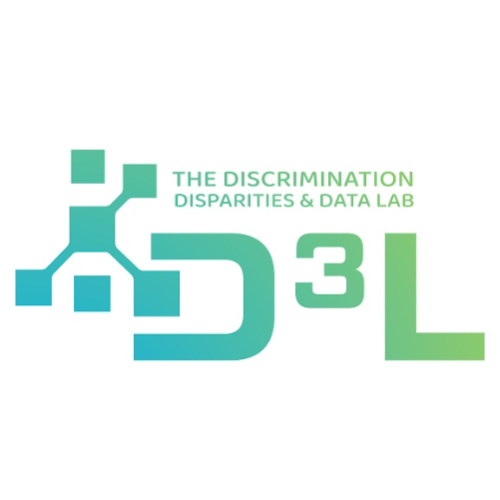Below is a selection of the research that D3L affiliates are working on:

“Discrimination in Access to Mental Health Care: Evidence from an Audit Correspondence Field Experiment”
Summary: Transgender people, African Americans, and Hispanics face mental health disparities. While mental health care can help, minoritized groups could face discriminatory barriers in accessing it. Discrimination may be particularly pronounced in mental health care because providers have more discretion over accepting patients. Research documents discrimination broadly, including in access to health care, but there is limited empirical research on discrimination in access to mental health care. We use an audit correspondence field experiment, also called an audit study, to determine the extent to which transgender and non-binary people, African Americans, and Hispanics face discrimination in access to mental health-care appointments. Our pilot study found significant discrimination against transgender or non-binary African Americans and Hispanics. We are currently collecting more data so we can better quantify this discrimination with larger sample sizes. Since the pilot study, we are also quantifying to what extent access to mental health care appointments varies by health insurance. We are particularly interested in to what extent those with Medicaid face barriers in access, and where those barriers occur.
Co-Authors: Patrick Button (PI, Department of Economics), Barbara Lundebjerg (Ph.D. Candidate, Economics), Yu Liu (Ph.D. Candidate, Economics), Luca Fumarco (Masaryk University), Benjamin Harrell (Trinity University), David Schwegman (American University)
Research Assistants: Yiwen Bao, Stacey Li, Cliona Poje, Emma Goldberg, Advaith Subramanian, Lauren Nelson, Zach Ramsey, Savannah Koester, Alison Sun, Jingwen He, Rachel Costello, Shilpa Shivajirao Suryawanshi, Sydney Sastokas, Helena Orrego, Amelie Bullen, Lily Markus, Evan Mattox
“Linguistic Markers of Subtle Discrimination Among Mental Healthcare Professionals”
Summary: We use mental health practitioner appointment request response data from the above audit correspondence field experiment of discrimination in access to mental health care to determine linguistic markers that suggest subtle discrimination. Using coding reliability thematic analysis, we develop five measures of response quality, and then annotate the response data to determine which responses exhibit each of these response quality features. We then fine tune a pre-trained language model that can detect these five response quality features. We will then apply this language model to additional data collected in the above experiment in order to determine if mental health practitioners provide responses of different quality to certain groups. This allows us to capture “subtle” discrimination and better capture to what extent there is discrimination beyond just who gets offered appointments.
Co-Authors: Simone J. Skeen (PI, Ph.D. Candidate, Department of Social, Behavioral, and Population Sciences), Patrick Button (Department of Economics), Daniel Lau (M.S.W. Candidate, Department of Social Work)
“Sexual Orientation and Racial Discrimination in Mortgage Lending: Evidence from an Audit Correspondence Field Experiment”
Summary: Existing research shows that same-sex couples and African Americans face reduced access to credit, have mortgages with worse terms, and have less access to home ownership. We seek to determine what role discrimination in access to mortgage loans may have in generating these disparities. To quantify to what extent there is discrimination, we conduct an audit correspondence field experiment, also called an “audit study”. We email mortgage loan officers in the United States with on-average identical inquiries about mortgage loans that come from same-gender and different-gender married couples. These couples are also either White (both individuals in the couple have names that suggest they are White) or African American (both individuals have African American specific names). We quantify discrimination by comparing the frequency and quality of responses by mortgage loan officers. For example, do loan officers respond more often or more favorably to certain groups, despite them being on-average identical? In addition to quantifying this discrimination, we seek to explore where this discrimination occurs and why it might occur (i.e., what factors correlate with this discrimination).
Co-Authors: Patrick Button (PI, Department of Economics), Hussain Hadah (Post-Doc, Department of Economics and the Murphy Institute), Javiera Selman (University of Chile), David Schwegman (American University), Catherine Balfe (Ph.D. and J.D. Candidate, UCLA), and Tran Nguyen-Phuong
Research Assistants: Zachary Airington, Baris Alan, Peter Carroll, Emma Goldberg, Emma Jones, Vinita Mahanti, Penny Robins, Carolyn Walsh, Mali Weitzman
